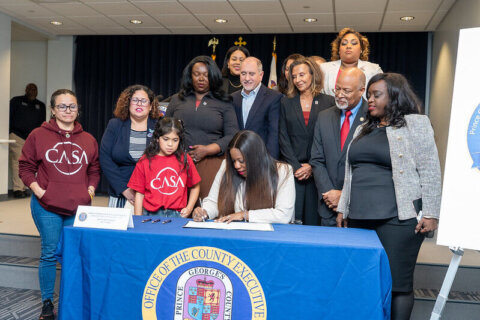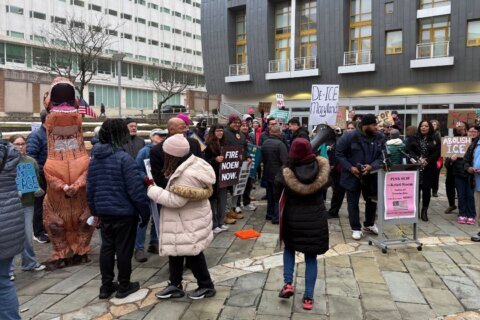This video is no longer available.
A measure that would have made major changes to how restaurant workers in Prince George’s County, Maryland, are paid was tabled by the county council on Thursday.
The bill would have pushed aside the tipped-wage credit commonly seen in the restaurant industry.
If passed, the bill would have raised the current minimum wage in Prince George’s County for those who draw their income mostly from tips from $3.63 per hour to $13 per hour within three years.
Questions raised over how restaurant workers get paid
Dueling rallies were held in Largo on Thursday as restaurant workers spoke for and against the bill.
That drew dozens of restaurant workers and leaders from the Restaurant Association of Maryland to Jasper’s in Largo, which is right around the corner from the county government building.
“This is how I was able to pay my college tuition. This is how I was able to get my first car. This is how I was able to get my first apartment,” said Pablina Kamara, a mother of three who told the crowd she’s been waiting tables for eight years.
Kamara works at Jasper’s. She led the crowd in chants of “save our tips” and said the service industry doesn’t need the proposed changes.
“Don’t let them do us like this, y’all,” she said.
Her boss at Jasper’s, Kelly O’Brien, said her servers make $22 to $47, on average, per hour right now, thanks to tips just on credit cards, and that some bartenders make as much as $60 per hour. She warned the proposed changes would lead her best workers to work in restaurants in other jurisdictions, while driving up her payroll and the cost of everyone’s meals.
“Our menu prices will raise a little bit,” said O’Brien, who said a service charge would make up the rest. “We cannot afford to pay the $15. We have 180 employees. But what we’ll do is have a 20-30% service charge.”
She said it would be necessary to cover an increase of about $1 million in payroll costs.
While those rallying against the bill wore green shirts in solidarity, those in favor of the changes being pushed by District 8 Council member Ed Burroughs wore pink as they rallied in front of the Wayne Curry Building, where county government leaders meet.
“The entire point of this bill is to put an end to poverty wages in our county … $3.63 an hour is simply unacceptable,” Burroughs told the crowd. “We’re not trying to take away tips from anybody. We want tips on top.”
Joining him at the rally was Saru Jayaraman of the group One Fair Wage, who said a similar measure in the District has helped the industry there.
“Workers in D.C. were lied to and they changed their minds,” she said. “Workers in D.C. were told your tips are going to go away if your wages go up. Didn’t happen.”
Guy Fohon said he was from College Park and worked at a restaurant in Laurel, where his wages don’t measure up right now.
“I constantly depend on customers to make a living now,” he said. “I’m qualified, professional, and deserve to be paid the regular minimum wage by my employer and still earn tips.”
When asked if he expected to make more money if the bill passes, he said “that’s the reason we’re here today.”
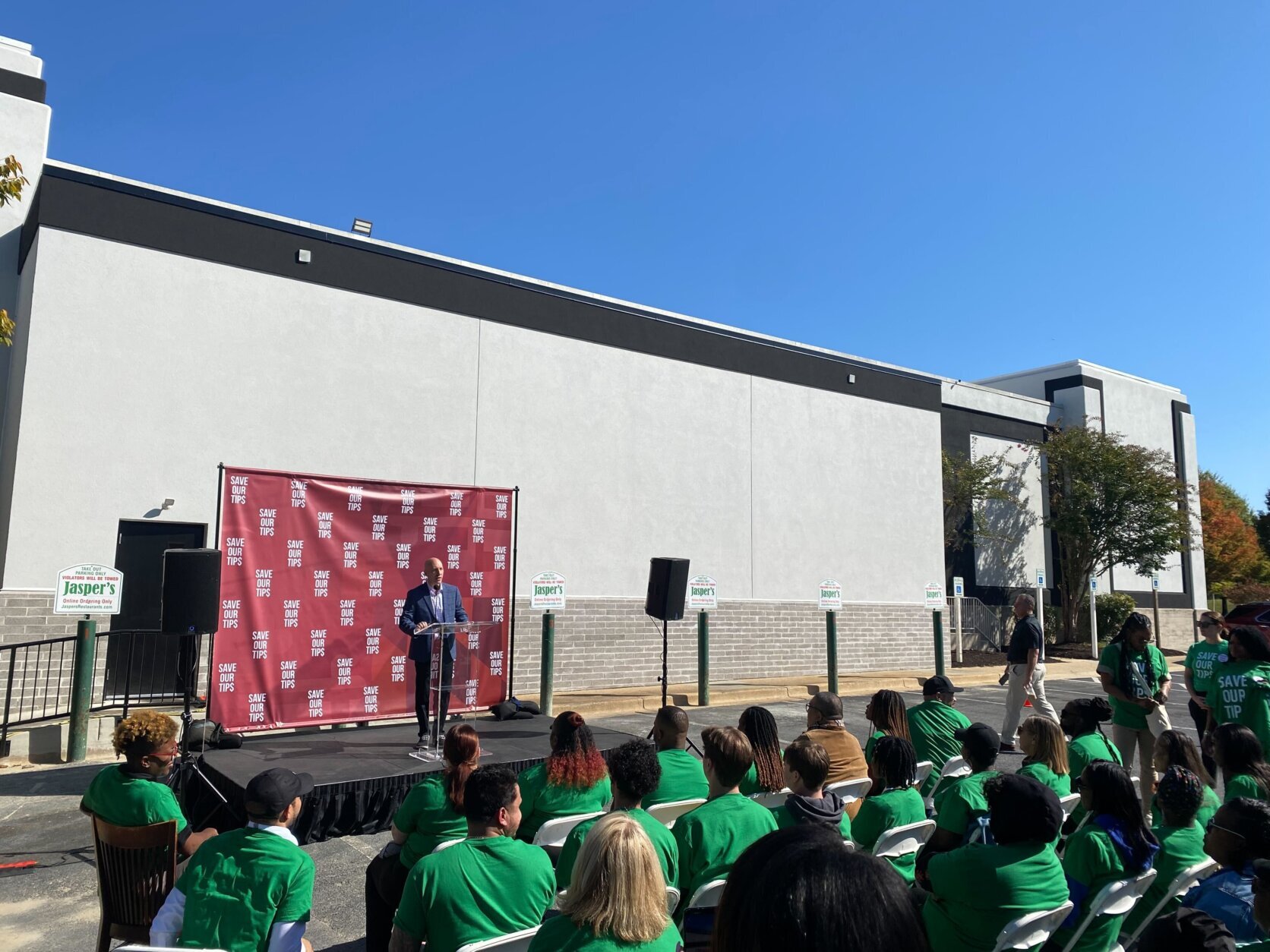
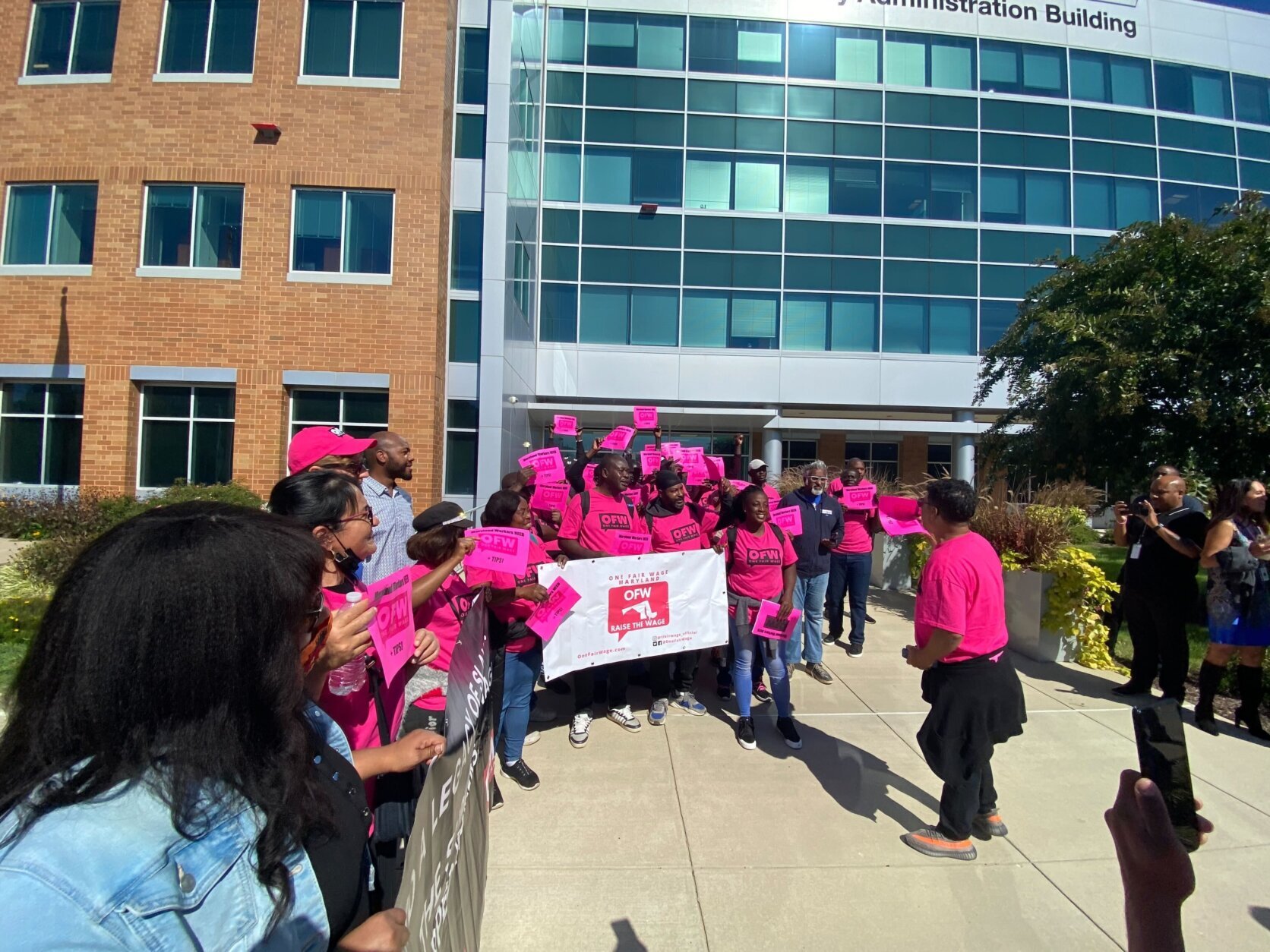
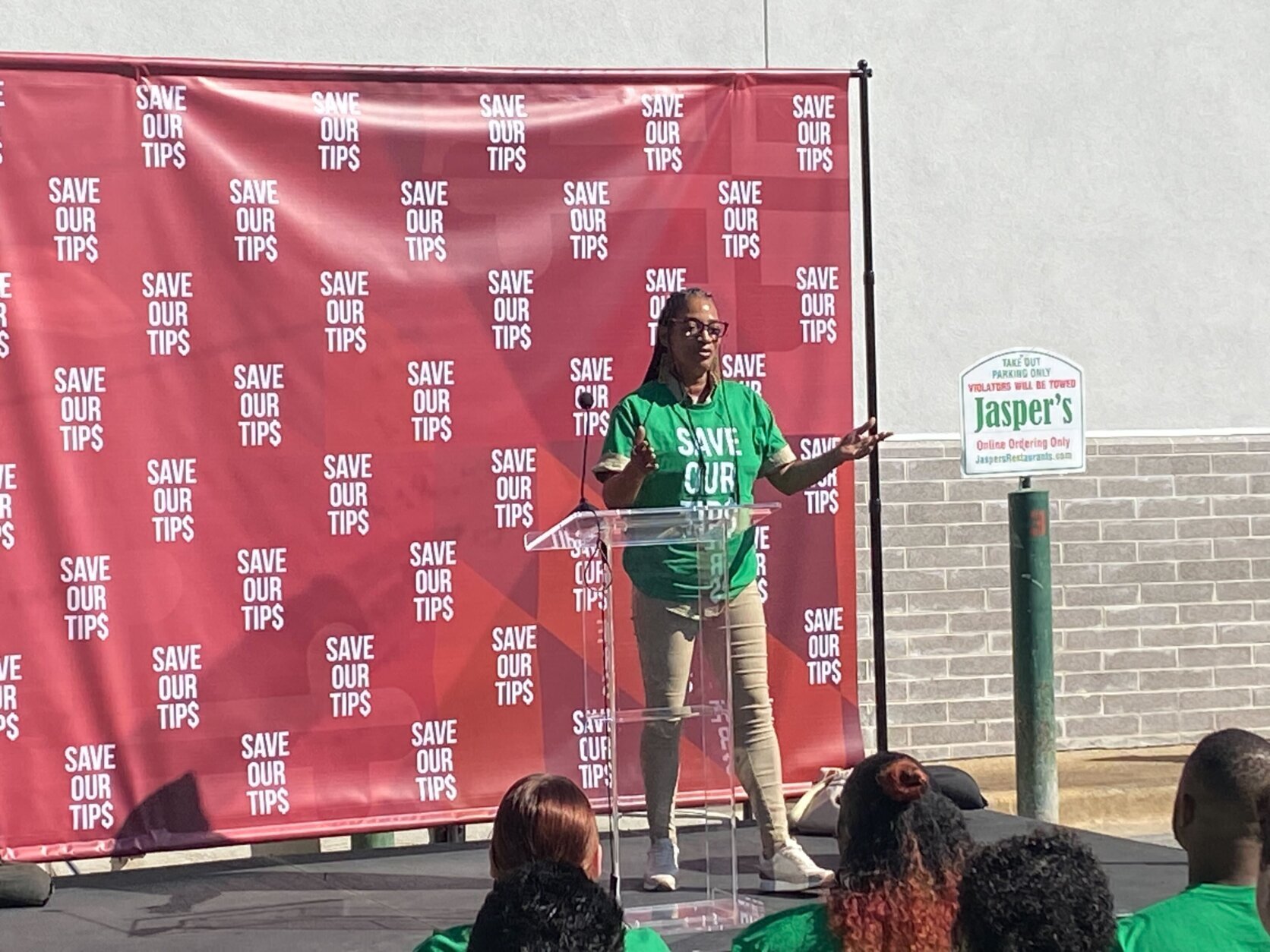



Debate over wages heads indoors
All of that led to a packed county council committee hearing on the matter, where about 50 people were signed up to testify in a hearing that started 30 minutes late, though not everyone was still there to testify by the time discussion on the topic began. Many of the same arguments made outside were expressed inside the chambers.
The first to testify was Robin Brooks, a server at an IHOP on Greenbelt Road. At one point, she asked anyone in the audience who was a server or bartender to raise their hands. Most of those in green shirts raised their hands, while very few in pink shirts did the same. She said, when you count in tips, she makes well above the current minimum wage and didn’t want the legislation to pass.
It was another reiteration that those advocating for the wage change weren’t part of the industry it would affect.
It was also pointed out by a member of the Restaurant Association of Maryland that, by law, even with a lower base wage, all servers are required to make at least the legal minimum wage every other worker does. If that worker doesn’t reach that through tips, restaurants are required to make up the difference.
Following the passionate testimony, councilman Sydney Harrison said he had spoken with several people on both sides of the issue.
“This bill that we put forward really was about how we can protect the workers and go after the bad actors,” said Harrison, referring to the wage theft issues raised repeatedly during the hearing.
“What I think needs to happen from hearing from everyone … we should deal with what our concerns are. One of those concerns is wage theft. We don’t know who the bad actors are but we’ve heard horror stories about it. I don’t think this bill gets us there,” he added.
Harrison was among the six sponsors of the bill, but in recent days had been considered the swing vote on the matter going into the committee hearing. Instead, he proposed a work group to look into the issue of wage theft.
Then, he asked the council to hold the bill indefinitely, a motion that was seconded immediately by council member Jolene Ivey. She said she was convinced by workers that they would make less money if the bill passed.
Moments later, the council did that, voting 4-0-1 to table the measure so other solutions to the issues that were raised could be explored.


